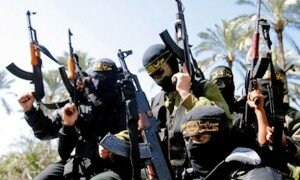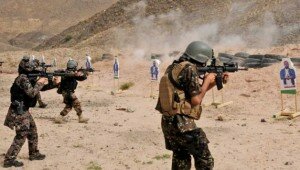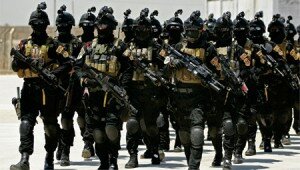By Irsa Shafiq
A year ago on 16th December, 2014 the day when Pakistani nation was completely traumatized after the heart-wrenching incident of school attack in Peshawar, the nation witnessed the mass funerals of 140 children and observed three days mourning officially. Omer Khurasani Tehreek.e.Taliban Pakistan leader, in his statements called it a revenge from Army for conducting operation Zarb.e.Azab. Whilst nation was in utter grief, a controversy emerged amidst this tragedy, when Red mosque cleric Maulana Abdul Aziz, tried to justify the bloodshed and brutality by almost giving the same reason as Omer khurasani, taking revenge from army/state.

In the two incidents mentioned above the targets and situation are entirely contrasting with respect to their implications, hitherto they sent a huge shockwaves down the spine of whole nation and generated an intense debate. These tragedies exposed the deep-rooted infiltration of radical subject either present in our main stream areas or living in the war-torn hard terrains; at the same time it also uncovered the difference between radical and moderate religious forces more clearly. The two incidents deepen the fault lines, and proved as a litmus test that provided us several lessons, which are still left to be learned by civil-military policy makers, establishment and civil society who had for long time ignored the fact that presence of radical subjects put the whole society at risk.
 The biggest question that arises here is do Pakistan have any focused de-radicalization strategy? The answer is probably NO!. Pakistan even after decade of gut-wrenching bloodshed is still lacking in devising a comprehensive, substantive and pragmatic de-radicalization strategy that revolves around changing the ideology or beliefs that aggravate violent behaviors.
The biggest question that arises here is do Pakistan have any focused de-radicalization strategy? The answer is probably NO!. Pakistan even after decade of gut-wrenching bloodshed is still lacking in devising a comprehensive, substantive and pragmatic de-radicalization strategy that revolves around changing the ideology or beliefs that aggravate violent behaviors.
Radicalization is a global phenomena, and one cannot simply downplay the impact of global and regional elements, yet the toughest problem for us is to deal with ‘home-grown radicals’ who have gradually become a ‘Frankenstein’ monster prevailing in multiple formations in each layer of the society influential enough to substantially damage fabric of Pakistani state and society. We need to address and identify this multi-faceted trends and patterns of ideological, religious and behavioral radicalization.
The process of radicalization is triggered by socio-political and economic injustices and societal marginalization, while religious dissonance, discriminatory religious laws, and indoctrination agendas of hard-lined forces further contribute to ‘homegrown’ extremists. It is widely believed that particularly in less developed states it is the inability of government who failed to bridge up with citizens of a particular sect. or segment leaving them on verge as a major soft target for radical forces to be gradually brainwashed and transformed into a violent extremist because not ‘every radical becomes a terrorist, every terrorist has gone through a radicalization process’. The situation is considered more dangerous as it put the whole society on path of collective radicalization. It is important to highlight that while the troubles are home-grown, the solution to address such problem must be found within.
 The strategic discourse of de-radicalization and counter terrorism in our society is more like crisscross path. At governmental level Pakistan’s major focus remained at using hard options to counter-terrorism through several internal military operations; but we need to pay more attention towards soft options of collective de-radicalization at social level as part of soft counter terrorism narrative. Putting more focus on state-sponsored collective de-radicalization can be helpful as the menace generally prevails in society at large. Since collective efforts encompass maximum results a mechanism that facilitate collective de-radicalization should be devised as it carry more credence in binding target group and individuals together and make circumstances more conducive that holds back vulnerable segments to fall on dark path of radicalization.
The strategic discourse of de-radicalization and counter terrorism in our society is more like crisscross path. At governmental level Pakistan’s major focus remained at using hard options to counter-terrorism through several internal military operations; but we need to pay more attention towards soft options of collective de-radicalization at social level as part of soft counter terrorism narrative. Putting more focus on state-sponsored collective de-radicalization can be helpful as the menace generally prevails in society at large. Since collective efforts encompass maximum results a mechanism that facilitate collective de-radicalization should be devised as it carry more credence in binding target group and individuals together and make circumstances more conducive that holds back vulnerable segments to fall on dark path of radicalization.
Despite the fact that the role of individual cannot be downplayed yet the group dynamics are also considerable elements in the context of social linkages or in formation of collective grooming of individuals nested in a society. For Pakistan the collective de-radicalization seems to be the most feasible option to alter prevailing behaviors, trends and patterns of a large number of radicalized subjects. Among Muslim states, Saudi Arabia, Egypt, Algeria, Indonesia have devised some of the most comprehensive strategies by using soft measures, mainly comprising of rehabilitation, disengagement, and aftercare. In each of these examples, the groups that collectively de-radicalize have in fact refrained from violence since they underwent through de-radicalization process. These examples show that collective measures are more permanent than individual measures, despite of their limitations.
 Collective de-radicalization strategies, although do not show immediate results, and the collective incentive to counter radicalization is hard to achieve with 100% success ratio, yet it is more effective and sustainable as compared to individual level. Bruce Hoffman, an American scholar writes: “Countering radicalism is like a game of chess … a chess game approach means understanding the threat and enemy and being able to anticipate and thoughtfully respond to how it changes and adapts. This means a strategy that uses reason and guile, not just brute force…. Chequres becomes a one-dimensional numbers game which measures gains more by how many leaders or militants are eliminated than how the flow of recruits is retard. For a game changing “strategic reversal the attrition of terrorist leaders has to be accompanied by concerted counter radicalization efforts that thwart recruitment”
Collective de-radicalization strategies, although do not show immediate results, and the collective incentive to counter radicalization is hard to achieve with 100% success ratio, yet it is more effective and sustainable as compared to individual level. Bruce Hoffman, an American scholar writes: “Countering radicalism is like a game of chess … a chess game approach means understanding the threat and enemy and being able to anticipate and thoughtfully respond to how it changes and adapts. This means a strategy that uses reason and guile, not just brute force…. Chequres becomes a one-dimensional numbers game which measures gains more by how many leaders or militants are eliminated than how the flow of recruits is retard. For a game changing “strategic reversal the attrition of terrorist leaders has to be accompanied by concerted counter radicalization efforts that thwart recruitment”
De-radicalization is not a smooth or linear process, and not a magic spell which can undo all the radicalization process overnight. Thus it is imperative that government should not only focus on verbal de-radicalization, but address the under lying causes. It is imperative to engage multiple stakeholders within the state to generate a positive peace narrative. An effective de-radicalization mechanism leads to disengagement, prevention and rehabilitation to reduce risk for the most vulnerable segment of society.
Finally, it may be said that it is vital to understand the multiple dynamics of radicalization particularly that stems out of religious violence instead of amplifying it merely by recourse to some indispensable historic events or labeling it with certain ideological characteristics of the actors involved. Terrorism, extremism and violence in which ever form it may be is the worst outcome of the radicalization process which push any individual or group to become a violent extremist. We must channelize our collective efforts to generate a process of changing minds and hearts. It is a high time that we talk not only about the problem but make some concrete efforts to curb this menace.
The writer is an Islamabad based researcher